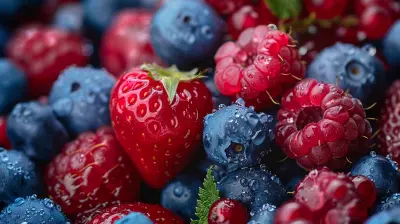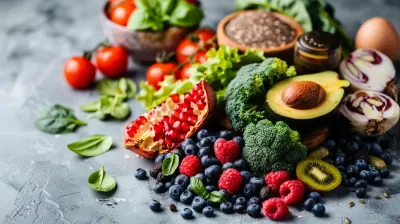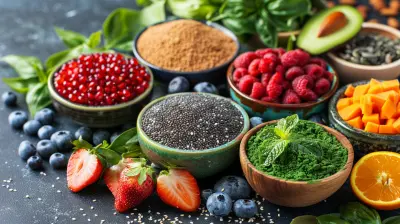Veganism and Healthy Aging: Preventing Disease Naturally
28 August 2025
Aging is inevitable. But how we age? Now that’s something we have a say in. Imagine growing older with energy, a sharp mind, and fewer pills to take. Sounds good, right? Well, here's the surprising twist—what you put on your plate could be a powerful key to that vibrant version of aging. In fact, many people are turning to veganism not just for ethical or environmental reasons, but to help age gracefully and prevent chronic diseases.
So, let’s dive into how veganism and healthy aging go hand-in-hand—and how you can make the most of this natural, wholesome approach to living your best life, year after year.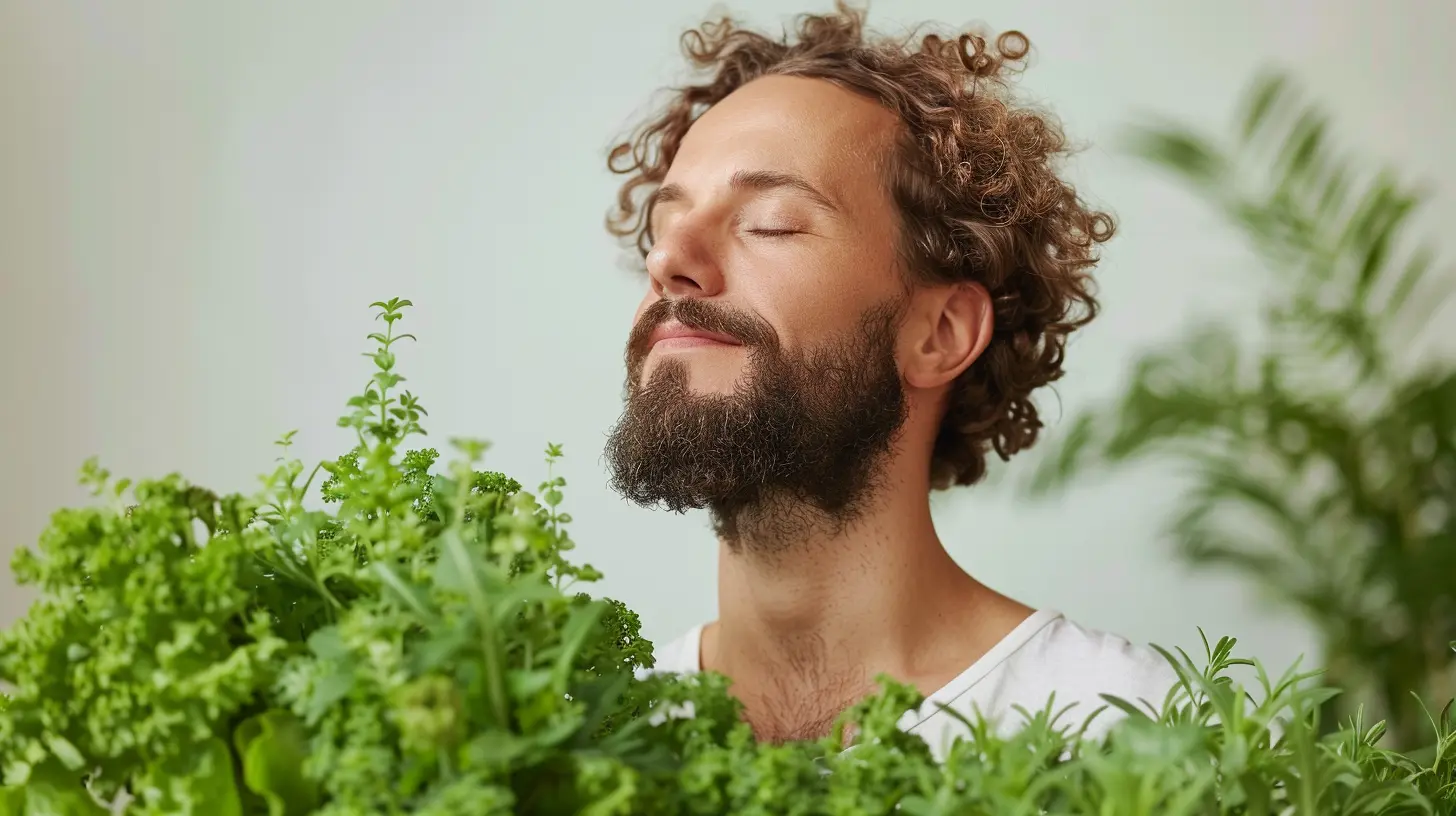
What Is Veganism, Really?
At its core, veganism means avoiding all animal products—meat, dairy, eggs, even honey for some. But it’s not just about cutting things out. It’s also about adding in. Think fruits, vegetables, grains, legumes, nuts, and seeds—that’s your daily menu on a vegan lifestyle.And no, it's not all salads and tofu. With a little creativity, a vegan diet is not only delicious but packed with nutrients that your aging body will thank you for.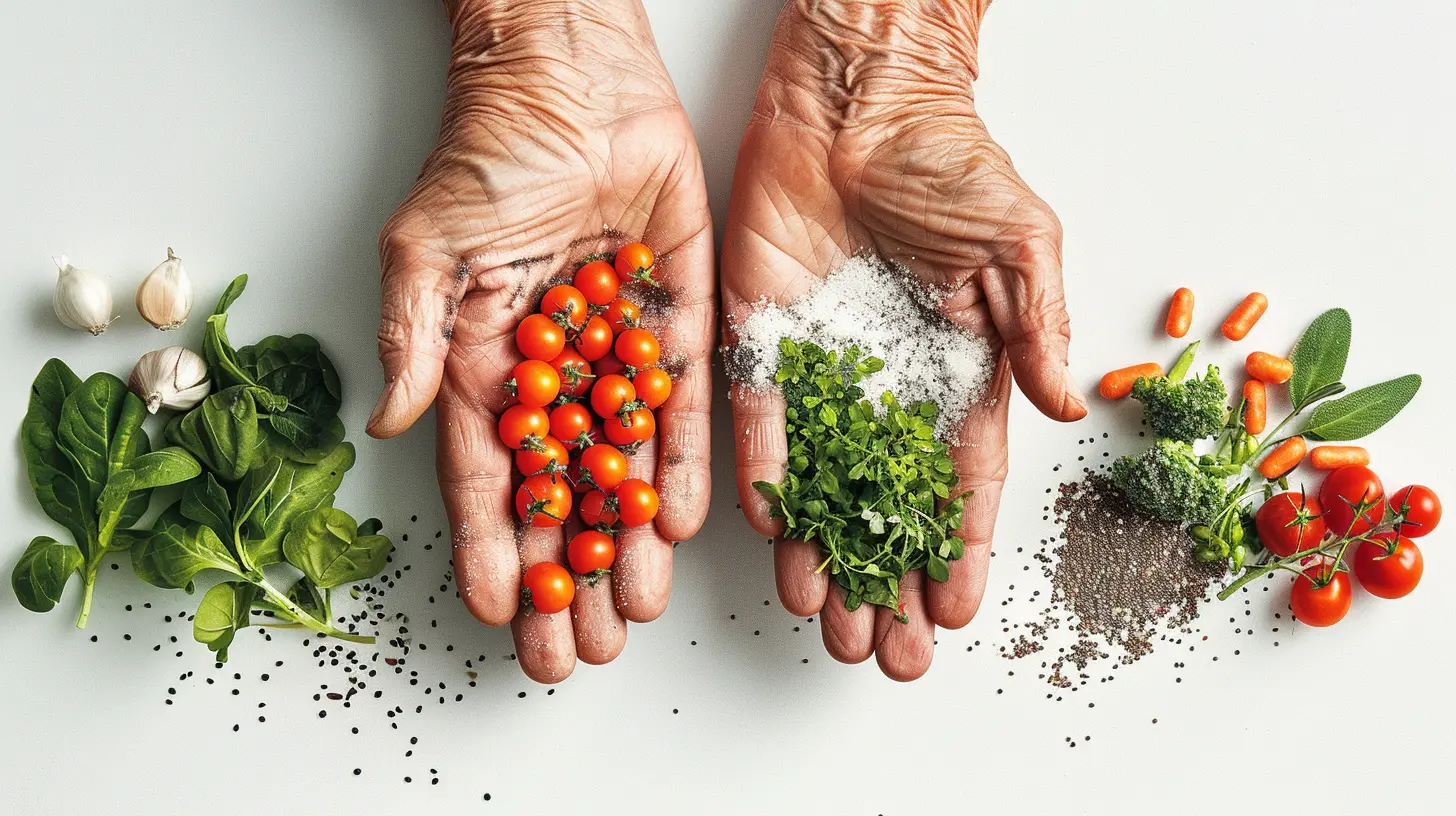
The Link Between Diet and Aging
Before we jump head-first into vegan aging, let's talk science for a sec. Aging is largely influenced by oxidative stress, inflammation, and cellular damage. These processes are partly natural, but they get worse with poor lifestyle choices—like eating heavily processed foods and too much red meat.A whole-food, plant-based vegan diet? It's loaded with antioxidants, fiber, and anti-inflammatory compounds. That’s the kind of fuel that supports your cells rather than breaking them down.
What This Means for You
Imagine antioxidants as little bodyguards for your cells. They protect you from free radicals, which are like party crashers that cause chaos in your body. More antioxidants? Less chaos. Less chaos? Slower aging and fewer chronic diseases. Win-win.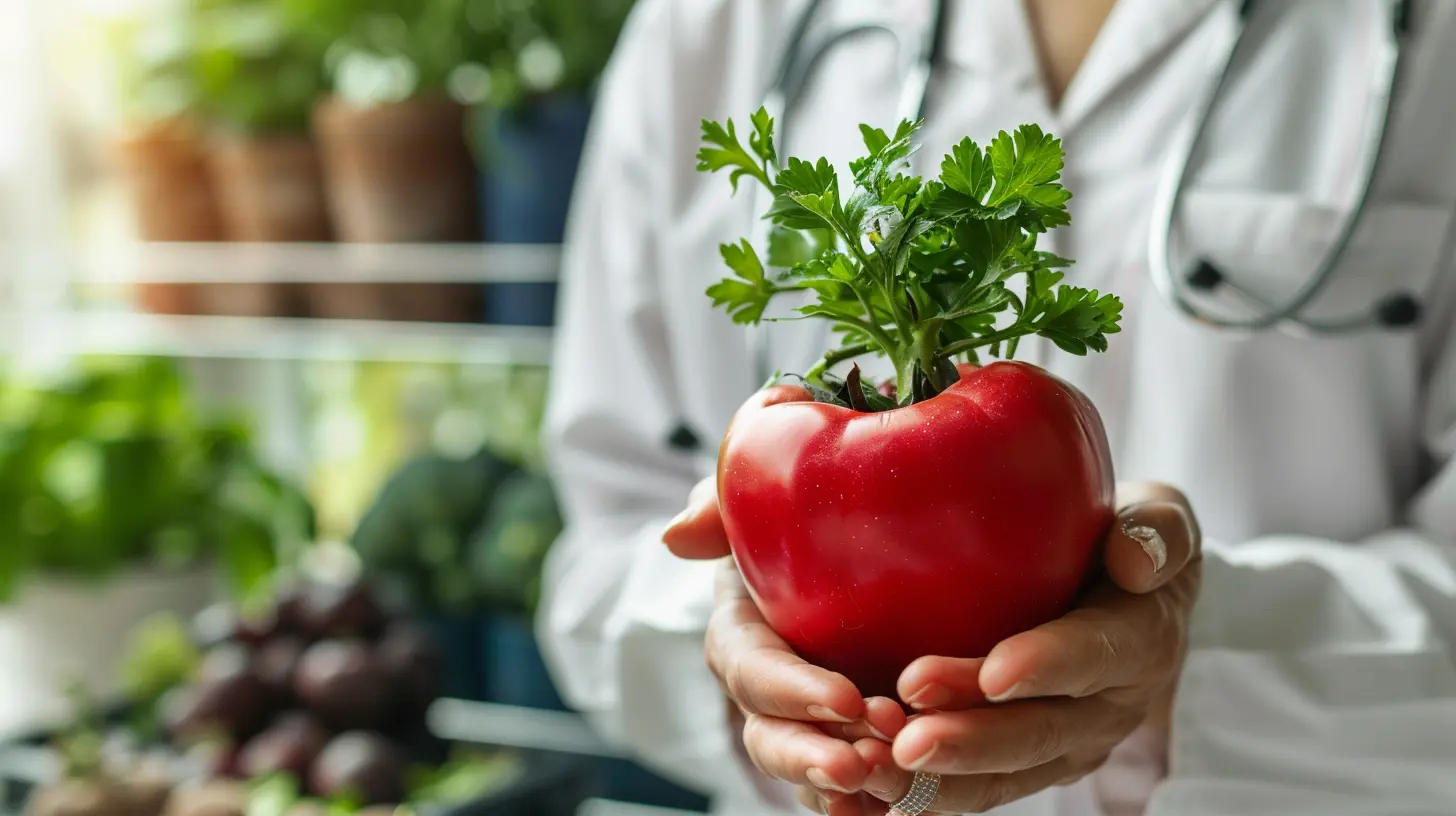
Veganism and Cardiovascular Health
Let’s face it—heart disease is still the number one killer worldwide. And here’s the kicker: it’s largely preventable. A well-planned vegan diet slashes the risk of heart disease by lowering bad cholesterol (LDL), blood pressure, and inflammation.The Fiber Factor
Plant-based diets are naturally high in dietary fiber, which does two big things for your ticker:- Lowers cholesterol levels
- Helps regulate blood sugar
More fiber = a happier heart and steadier energy levels.
Say Goodbye to Saturated Fats
Animal products are the top source of saturated fat, which clogs arteries like hair down a drain. Plants, on the other hand? They’re low in saturated fats and high in healthy fats like omega-3s (especially from flaxseeds, chia seeds, and walnuts). That’s the type of fat your brain and body actually need.
Fighting Diabetes the Natural Way
Type 2 diabetes isn’t just an “old person’s disease” anymore—it’s creeping into younger populations, but it still hits older adults the hardest. The good news? You can drastically reduce your risk (and even reverse early-stage diabetes) through diet.How Veganism Helps
The secret sauce? Plant-based diets improve insulin sensitivity and help regulate blood sugar without creating more inflammation. Processed meats and high-fat dairy have been linked to insulin resistance. Switching to plants reduces that risk and helps manage weight, another key factor in diabetes control.Vegan Diet and Cognitive Health
We all fear the mental fog that can show up as we age—forgetting names, where the car keys are, or why we walked into a room. But what if your diet could help delay or even prevent cognitive decline?Brain-Boosting Benefits of Plant Foods
Leafy greens, berries, nuts, seeds, and legumes are packed with nutrients that support brain function. Think folate, vitamin E, polyphenols, and omega-3s. These help keep your brain cells firing efficiently and reduce inflammation in the brain.Alzheimer’s and Diet: Is There a Connection?
Several studies suggest that diets rich in fruits and vegetables may lower the risk of Alzheimer’s disease. The Mediterranean and MIND diets, which are plant-heavy, have been linked to slower cognitive decline. A well-balanced vegan diet? It fits right into this protective pattern.Maintaining Bone Health on a Vegan Diet
One of the biggest questions people have about veganism and aging is this: "What about my bones? Don’t I need dairy for calcium?"Spoiler alert: You don’t.
Getting Calcium from Plants
Yep, plants have calcium too. Some of the best sources include:- Kale
- Broccoli
- Almonds
- Fortified plant milks
- Tofu (especially when calcium-set)
And get this: many plant-based calcium sources come with bonus nutrients like vitamin K and magnesium, which help your body actually use that calcium effectively.
What About Vitamin D?
No matter your diet, vitamin D is crucial for absorbing calcium. You can get it through safe sun exposure or supplements—just like non-vegans often do.Protein Worries? Don’t Sweat It
“Where do you get your protein?” is probably the most asked question for vegans—especially older adults worried about muscle loss.Here’s the truth: you can absolutely get enough protein from plants.
Top Vegan Protein Sources
- Lentils- Chickpeas
- Tempeh
- Tofu
- Quinoa
- Nuts and seeds
Pairing a variety of these throughout the day gives you all the essential amino acids your body needs for muscle repair and immune function.
Building and Maintaining Muscle
Muscle mass naturally declines with age, but staying active and eating enough protein-rich plant foods can help you stay strong. Think of protein as the building blocks, and exercise as the blueprint to maintain strength and balance.Cancer Prevention and Veganism
We all know someone affected by cancer, and many are now looking to diet as a way to lower their risk. While no diet guarantees that you’ll never get cancer, a vegan lifestyle can minimize several risk factors.What’s the Connection?
Red and processed meats have been classified by the WHO as carcinogenic. On the flip side, plants are packed with phytochemicals—natural compounds that help prevent cancer by neutralizing harmful toxins and supporting healthy cell growth.Fruits and veggies are kind of like your body’s internal cleanup crew.
Gut Health and Immunity
Your gut is home to trillions of bacteria—some good, some not-so-good. A healthy gut equals a stronger immune system and better nutrient absorption.Fiber: The Gut’s Best Friend
Plant foods are loaded with prebiotic fiber, which acts as food for your good bacteria. The more diverse your plant intake, the more diverse and resilient your gut microbiome becomes. And a strong gut equals better immunity and reduced inflammation—both crucial as you age.Nutrients to Watch on a Vegan Diet
Let’s keep it real—while a vegan diet can be incredibly nourishing, there are a few nutrients you’ll need to keep an eye on to make sure you’re hitting all the right marks.Key Nutrients for Healthy Aging Vegans
- Vitamin B12: Supplement this, no exceptions.- Vitamin D: Consider a supplement, especially in colder, darker climates.
- Iron: Found in legumes, dark greens, and whole grains. Pair with vitamin C for better absorption.
- Omega-3 (ALA, DHA, EPA): Get ALA from flax, chia, and walnuts. Consider an algae-based DHA/EPA supplement.
- Calcium and Zinc: Easily found in fortified foods and variety in meals.
Think of these like your vegan diet’s MVPs—they keep the system running smoothly.
Transitioning to a Vegan Lifestyle Later in Life
It’s never "too late" to go vegan. Whether you're in your 40s, 60s, or 80s, your body will thank you for feeding it cleaner, kinder fuel.Tips for a Smooth Switch
- Start slow—try Meatless Mondays or plant-based breakfasts.- Experiment with new recipes and flavors.
- Find community support—online or in-person groups can be super motivating.
- Talk to a dietitian if you’re unsure about your nutritional needs.
Your taste buds might take a minute to adjust, but your energy, digestion, and mood might just get a major upgrade.
Final Thoughts: Aging Vibrantly, One Bite at a Time
Getting older isn’t about slowing down—it’s about keeping up with what matters most. Whether that’s playing with your grandkids, traveling the world, or simply waking up pain-free, a vegan diet can support that vision.Healthy aging isn’t just about living longer—it’s about living better. And what you choose to eat today can shape the aging journey you'll have tomorrow. So go ahead—fill your plate with colorful, whole, plant-based foods. Your future self will thank you.
all images in this post were generated using AI tools
Category:
Vegan DietAuthor:

Tiffany Foster
Discussion
rate this article
1 comments
Diesel Harmon
Embracing veganism is not just a trend; it's a radical choice for health and longevity. Ditch the excuses—fuel your body with plants and thrive into old age!
September 11, 2025 at 4:53 PM

Tiffany Foster
Absolutely! Embracing a vegan lifestyle is a powerful way to support long-term health and well-being. Let's thrive together through plant-based choices!
